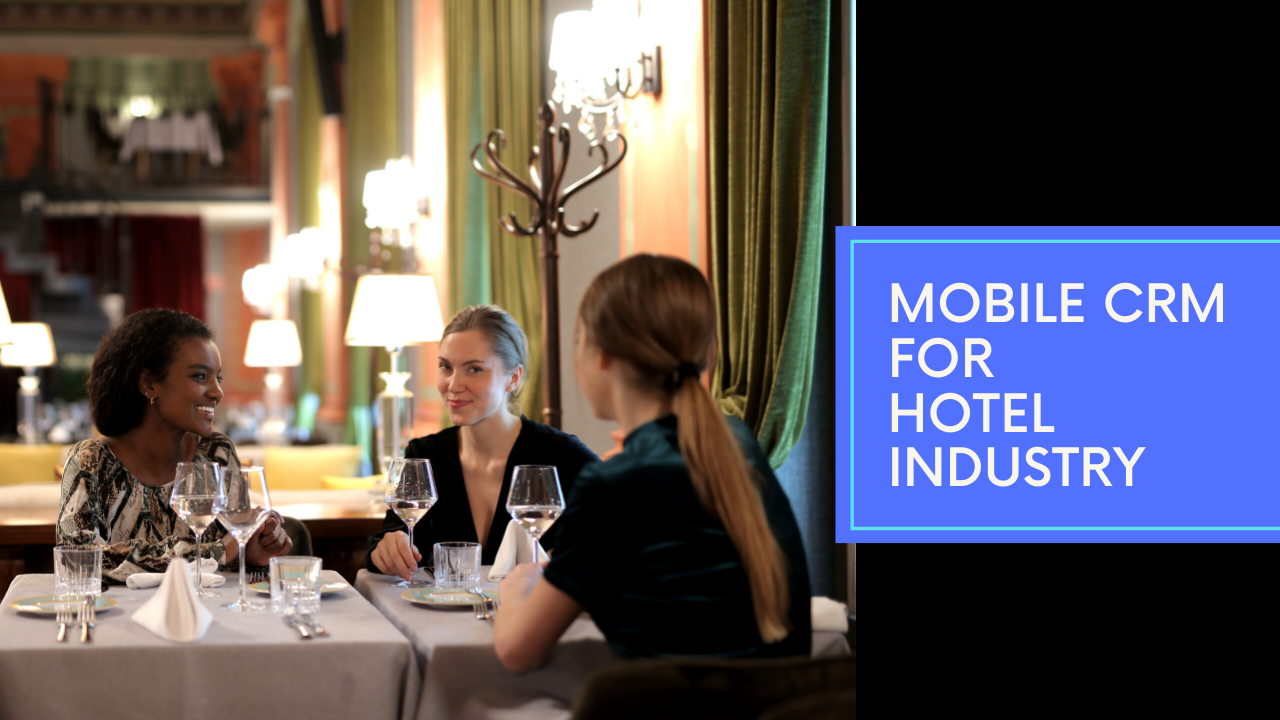Customer Experience has become the cornerstone of today’s digital marketing. A single bad online review can damage a business’ reputation to a greater extent. In fact, around 84 percent of people do no rely on adverts. Instead, they prefer third-party validation when making any digital purchase. With the world riding the digital wave, customer experience is going to be a top priority for the upcoming years.
On the other side, it is the experience customers receive which makes them loyal, not loyalty, product, or price discounts. Christine Rimer, VP of Customer Experience and Advocacy at SurveyMonkey says, “Convenience is not separate from experience but rather a critical aspect of the customer experience. Making it easier to connect with a business and its services is the key attribute a CX leader is trying to understand and improve. It is more important than ever to reduce the friction in the journey, particularly with the digital experience.” Any kind of discomfort is enough to drive the customer to another brand’s way. This decision also comes easy due to the availability of cross-device shopping via a wide range of channels.
However, technology also favors businesses. With the proliferation of internet devices and handheld smart devices, the influx of data provides businesses great insights into the customer. Around 33% of elite marketers say having the right technologies for data collection and analysis is the most useful in understanding customers, as per ‘The New Marketing Reality’ report by Econsultancy & IBM. While 88% of marketers surveyed by Forbes use data obtained by third parties to enhance their understanding of each customer. This relationship between the customers’ data and expected relevant experience demands a robust system capable of bringing balance to the equation. Customer Relationship Management (CRM) does exactly the same.
In a simple statement, CRM helps in managing customer data. As per Salesforce, “Customer Relationship Management (CRM) is a strategy for managing all your company’s relationships and interactions with your customers and potential customers.” It entails sales management, displaying actionable insights, integrates with social media, and facilitates team communication. The term CRM usually refers to a CRM system that helps with contact management, sales management, workflow, productivity, and much more.
A CRM system allows businesses to stay up-to-date with customer details, track their interactions, and manage accounts. It is created to support businesses to improve their customer relationships and Customer Lifetime Value (CLV). It is important as a vast amount of data is generated by customers. A CRM system collects all the information and turns it into actionable insights advantageous to the business. Businesses, with the help of CRM, stay up-to-date with their customers, and if the CRM is cloud-based, they can do it from anywhere, anytime.
CRM is now expected to reach more than $80 billion in revenues by 2025. It serves diverse industries and is completely customizable to the needs of the business. They offer assistance to the Hotel industry, Travel Industry, E-commerce industry, Healthcare Industry, Education Industry, Real Estate Industry, FMCG industry, Pharmaceutical industry, Media Industry, Retail Industry, Service Industry, and many others. Among those, let’s see how CRM helps the hotel industry to manage their customers.
CRM for Hotel Industry
The hotel industry is one of the fastest-growing industries in the world. However, this rapid growth brings along its own set of challenges. Hotel aggregators taking away their customers, changing customer experience due to increasing population, irregular cashflow, unsold inventory are some of the hurdles faced by the industry. To overcome these challenges, hotels must engage with their customers continuously, offering them tailored solutions alongside new launches and expansion in new locations.
This personalized approach with the customers calls for a good CRM to understand customers better and get ahead of the competition. CRM in the hotel industry can deepen the relationship between hoteliers and customers and keep them coming back again and again.
Centralization
It is imperative to store all the information in a single centralized database when running a large chain of hotels. With centralized information, every concerned party can access the information without much hurdles. A CRM platform does exactly that and stores all relevant information in a centralized database. A hotel built in one city can check out a customer’s information, preferences, and feedback if he/she has stayed in another chain of the hotel in a different city. Based on the information, hoteliers can serve their customers with everything they like and want in their stay.
Track Inventories & Rooms Occupancy
Hotel CRMs either work closely with or even incorporate tools from operations management (OM) and property management systems (PMS). This provides a variety of high-level features, such as identity management, room service, housekeeping, and stock management. A CRM unifies and analyzes every generated data.
Lead Generation
While it is important to retain the existing customers, a steady flow of incoming customers will always be beneficial for a hotel. Hotels face many challenges pertaining to generating new leads. The current unprecedented times of coronavirus have further created new challenges for the hospitality industry. To remain alive, competitive, and ensure profits, hotels must come up with new ways to attract as well as retain the existing customers. Apart from maintaining much-needed hygiene and safety protocols, they must take advantage of technology to stay relevant in the evolving industry.
With CRM, hotels can optimize functions and aid in finding new markets and customers. With the new database of potential customers, homogeneous categories can be formed, which later can be accompanied by personalized marketing. Later on, these leads can be converted into customers. In addition to lead generation, lead nurturing and lead scoring capabilities can also help in identifying possible customers and marketing to them. Hotels can also integrate CRM throughout their business model. As such, hotels can boost their profits and grow even during times of crisis, with the multiple capabilities present in CRM tools. A hotel CRM can aid in:
- Enriches potential customers’ details from their social profiles
- Assign customers to the right agent by resort location, preferences, and alerts
- Track customers’ activities on the hotel’s website
- Automate tasks and workflow
Personalized Conversation
Understanding the customers and their needs is the sure-shot answer to earning their loyalty. These needs are fulfilled by offering personalized care for customers as per their requirements. CRM herein provides a 360-degree review of customer information, their page views, website interaction, conversation history, preferences, and other necessary activities. This comprehensive representation provides hoteliers the much-needed context to have relevant personalized conversations with the customers.
With a personalized conversation, hoteliers must also engage them to further strengthen the relationship. It is reported that businesses lose around $1.6 trillion dollars every year when customers move away from them. Accenture also reports that 89 percent of customers get frustrated when they need to repeat issues to multiple representatives. Hence, it is imperative for them to turn one-time customers into repeat customers. With a CRM in place, the sales team can send relevant messages to potential customers on their queries, information, positioning in the billing cycle. It will also allow hotels to get feedback, fill in the gaps, and overall offer enhanced service. With all the collected information, CRM will also create a database and remember their preferences and can help in retargeting them with attractive offers. CRM create personalized conversation by:
- Automating all marketing communication based on customer activities
- Create personalized emails and bulk emails — Sending welcome mail, discount for customer on their birthday, SMS on anniversaries
- Addressing queries faster — Learn different ways to engage customers
- Customizing a series of emails for prospects and convert leads to customers — Real-time alerts on email open and clicks
- Allowing robust partnership between sales and service teams
- Understanding Customer Support Platform
Furthermore, this tracked data and personalized conversations can be converted into visual reports with the help of CRM. Additionally, it can generate reports of booking channels, length of stays, cancellation patterns, amongst many others.
- Pull customer data from standard or custom report
- Schedule report for managers
- Set up a sales report dashboard, view multiple reports, and follow the status of weekly or monthly bookings
Mobile CRM for Hotel Businesses
Far beyond the conventional functions of CRM, hotel businesses can invest in a mobile CRM to pay dividends throughout an organization. The mobile CRM market shows great potential and is expected to grow 11 percent to $15 billion worldwide this year, given the rise in mobile devices. Statistics from Forester also show that around 50 percent of teams improved their productivity through mobile CRM. As such with the internet and mobile devices boom, hotel businesses see customers everywhere — in sales, marketing, customer service, and IT.
A Nucleus Research report finds that for companies using mobile CRM, 65% are achieving their sales quotas. While only 22% of reps using non-mobile CRM have reached the same targets. With mobile CRM, the sales team benefit from efficiency, reduced admin overheads, and the flexibility of accessing shared data from the cloud anywhere and everywhere. Marketing teams can take the personalized approach to the next level on the go. Customer service teams catch up to the cases promptly, track them across channels, and bring solutions to them using the knowledge of the whole organization. IT teams gain a whole development platform for mobile apps, with built-in integration to a back-end CRM system. Even those working indirectly with clients can utilize mobile CRM to manage schedules, analyze data, generate reports, organize important documents in a centralized location.
Although the use of CRM on a mobile device is still lower than that of a laptop or desktop, the rising use from mobile devices and tablets means that 81% of users are now accessing their CRM software from multiple devices. They are taking advantage of all the CRM functions with the added benefits of on-the-go access via cloud computing.
Benefits of Mobile CRM:
- Calendar integration Planning
- Establishing quick contact
- Access and update leads, contacts and opportunities
- Create, Open, and share files
- Access dashboards on the go
- Track, manage and respond to customer queries
- Access to up-to-date data at all times
All such features come equipped with automatic updates enabling every salesperson to oversee CRM data, analytics, a prompt solution to customer queries on any device, and every team on a single page. Mobile CRMs are also equipped with extensive security features such as multi-factor authentication and VPN standards.
How to Choose CRM for Hotels
Defining the Purpose
The selection of CRM can depend upon the purpose and the department/office within an organization. For instance, a sales department will use CRM to generate leads and turning them into clients. Q&A department will evaluate the satisfaction level of the customer and whether or not their queries were answered or not. While a marketing department may use CRM to create email marketing campaigns to build customer loyalty. As all these functions are defined by departments, hotels must define the goals that they want to achieve by using a CRM system.
Tools
The tools needed will also depend on the defined goals to achieve. The selection of CRM should be based on the goals and hotels must see that the selected CRM has the right tools to accomplish the objectives. A start for every hotel would be considering a CRM that can manage a database full of information on the contacts. It needs to be intelligently segmented and filterable so that hoteliers can quickly obtain lists of contacts differentiated on the basis of any given criteria.
Integration
The selected CRM must be easily integrated into the working system. It should also offer ease of customization and a simple learning curve.
Scalability
A CRM must also offer the capability to grow and expand as the hotel does.
Affordability
Pertaining to goals and set budget, hotels can select from a variety of different packages offered by CRM providers. Most will offer different packages to suit different needs, and allow for customization.
Top CRM to Choose for Hotel Industry
Revinate
Revinate offers a CRM solution that caters to small to large hotels in managing online reviews, marketing, ticketing campaigns, and much more. Its rich guest profiles include booking methods, the total number of stays, total number of nights, total money spent, time since during the last stay, upsell requests, special preferences, as well as guest information from other CRMs and PMSs. It offers guest feedback and survey forms for more detailed accounts of the customer experience. Marketers can create, send, and manage campaigns for different hotel locations, and a unified brand message.
Revinate’s Reputation manages helps users capture, measure, and optimize the guest experience by bringing together all online reviews and social media mentions including Google, TripAdvisor, etc. into a single, integrated view.
Experience Hotel
The all-in-one solution brings in the ability to manage guest database, e-reputation, guest experience, and email marketing campaigns. It emphasizes on strengthening customer relationships by helping staff to ensure a top-quality experience. It comes integrated with scads of upsell campaigns for a wide range of offers, including spa treatments, restaurant deals, and room upgrades. It also allows users to set up different campaigns for targetted different things such as nationality, interests, age, etc. It eliminates third-party commission for returning guests by offering an easy re-booking tool which is integrated in-house with the hotel.
NetSuite
A part of the NetSuite SaaS family, NetSuite CRM is a cloud-based CRM solution that highlights the hospitality and restaurant industries as one of their intended verticals. It can support larger hotel enterprises spawning multiple brands, locations across the globe, and employee management systems from part-time staff to hotel managers and corporate executives. NetSuite also serves a variety of industries including wholesale distribution, manufacturing, media/publishing, and retail to thousands of customers. NetSuite CRM+ offers NetSuite products for handling accounting, inventory, marketing, and loyalty programs, and much more. The iPhone NetSuite extends the software’s capability to the mobile device. The analysis feature allows back-office metrics and data to be integrated into front-office operations to provide a complete view of their organization by the upper management. The architecture and platform of NetSuite CRM allow companies to personalize and customize the solution to their business needs.
Salesforce
Salesforce’s CRM features include active social listening in real-time, allowing hotel owners and managers to read current and past guest reviews online. The case management features allow representatives from hotel support to receive, respond and solve any problems with minimal delay for travelers and guests Full information collection opportunities, all of which help to monitor customer experiences via sales life, and the guest experiences during reservations. You can build personalized mobile apps to use for reservations, check-ins, requests, or special offers for guests. Another powerful feature here is how well it fits within the Salesforce line of apps to help businesses to scale up in a different set of directions.
Guestfolio
Guestfolio is a hotel CRM with features such as the ability to offer room upgrades and amenities and facilities, automated email marketing, and enhancement of customer profiles to smaller hotels. It also has a mobile concierge to schedule its events in advance, and hotels can upsell services and activities. This CRM Hotel encourages the establishment of relationships with automated emails sent both before and after a guest’s stay. The method to receive customer feedback and reviews on TripAdvisor is also streamlined. Among the qualities of Guestfolio are improvements to the rooms, enhanced guest profiles, and business rewards. The mobile concierge allows hotels to undertake guests to schedule their journey and give the hotel a deeper insight into how it will best accommodate the guests during their stay before arriving. It also informs visitors of facilities, enhancements, and programs that boost the hotel’s revenues. Guestfolio integrates with a suite of other Cendyn platforms for sales, marketing, and revenue management services
TravelClick – Guest Management
It is a comprehensive CRM solution in the market tailored for hoteliers to engage current, past, and potential guests at every stage of the travel journey. Users can attain and leverage a 360° view of every guest to seamlessly recognize, act on preferences, and deliver personalized messages or offerings at the right time, even as behaviors evolve. Hotels can also maximize the value of existing guest data to achieve more direct bookings, a higher share of recurring revenue, and stronger brand recognition.
CRM in the hotel industry helps hoteliers to manage and offer the best possible guest experience through a single window. It has evolved into a fast, intelligent way to reach, engage, and retain customers. Today, the CRM industry has changed from a product-centric to a consumer-focused unit and the emphasis has been closer to the customer. The ‘customer’ is the core focus whether it be the policies, processes, staff, structure, or systems. Improving overall guest experience, better guest management, timely service, high-quality experience, and accurate and prompt responses are just some of the main expectations of the standard CRM solution.











